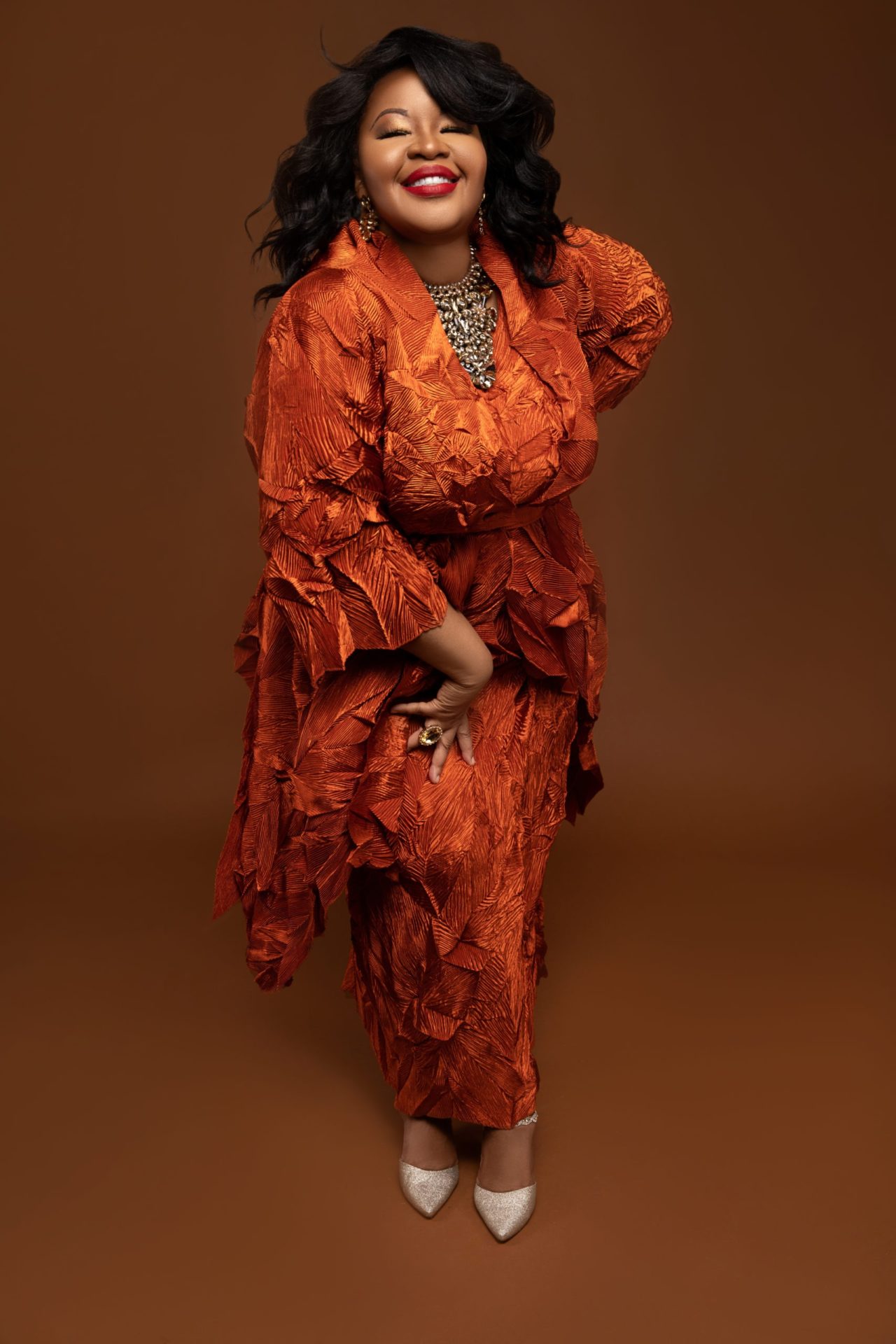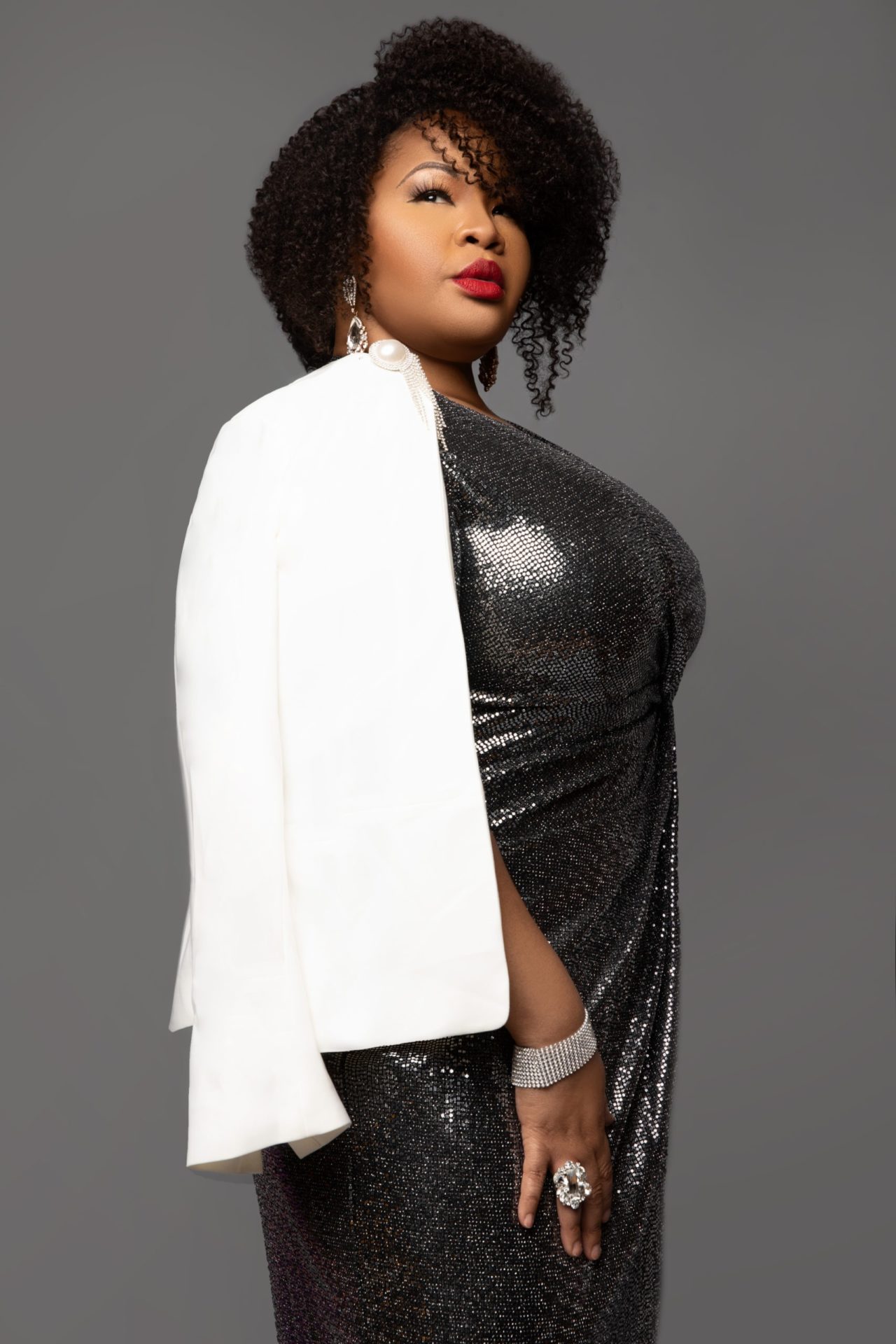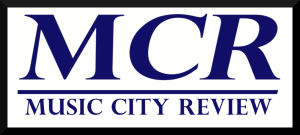The MCR Interview:
Interview with Karen Slack
 The Nashville Symphony will present a world premiere of composer Hannibal Lokumbe’s The Jonah People: A Legacy of Struggle and Triumph at Schermerhorn Symphony Center, 7 pm, April 13; 8 pm April 14–15; and 2 pm April 16.
The Nashville Symphony will present a world premiere of composer Hannibal Lokumbe’s The Jonah People: A Legacy of Struggle and Triumph at Schermerhorn Symphony Center, 7 pm, April 13; 8 pm April 14–15; and 2 pm April 16.
This work, the largest ever commissioned by the Symphony, is a metaphorical reference to Africans as Jonah in the belly of the whale, which is, in turn, a biblical reference to Jonah in the deepest hold of a ship trying to escape God’s commands. According to the Austin American-Statesmen, Lokumbe’s massive new work, which features nine soloists, over thirty actors, a full chorus and orchestra, a jazz quintet, and an African drumming and dance ensemble, will “chart slavery’s repercussions” and its legacy. “Jonah,” the composer’s largest-scale production to date, moves from fifteenth-century West Africa to the modern era; it is presented in four movements, called “veils.”
Representing Music City Review, I had the opportunity to connect with soprano Karen Slack [KS] about her featured role in this upcoming performance. Ms. Slack, a native of Philadelphia, has performed with some of the most renowned opera companies in the US, including New York’s Metropolitan Opera and the Lyric Opera of Chicago. She has also begun an international career with companies in Canada and Scotland. As a recitalist, she has performed such major works as Mendelssohn’s Elijah, Mahler’s Das Lied von der Erde, Barber’s Knoxville Summer 1915, and Schoenberg’s Gurrelieder. Following in the footsteps of her musical ancestors, Ms. Slack also features Negro spirituals as part of her programs.
This will not be her first performance in Nashville, having performed the role of Donna Anna in Mozart’s Don Giovanni with Nashville Opera in 2016. Her multifaceted career includes appearing as “Opera Diva” both onscreen and on the soundtrack for Tyler Perry’s film For Colored Girls, serving as artistic advisor for the Portland (OR) Opera, and hosting her own podcast, KikiKonversations.
The following interview, conducted via email, has been lightly edited.
Y Kendell [YK] Rather than using acts, Lokumbe divides his opera into what he calls “veils of understanding” that reveal differing stages of the African experience in America. Could you discuss your role in The Jonah People and its challenges?
KS: I have three roles in this work. Boukman’s Mother, Fatiman, and Susie. Each represents a woman who leads in her community and time period. I don’t see any challenges with performing them all in the same evening.
[NOTE: Dutty Boukman was an early leader of the 18th-century Haitian revolution; his mother was known as a literate Jamaican originally from Ghana; Cécile Fatiman, was a bi-racial priestess and also an important figure in the revolution; Susie Burgess Peterson was Lokumbe’s grandmother]
YK: You are appearing in two Lokumbe premieres in short order [May 13, 2023, the Oklahoma City Philharmonic presents the world premiere of Lokumbe’s Trials, Tears, Transcendence: The Journey of Clara Luper and the Nashville Symphony’s commission, The Jonah People]. How do the pieces and your roles in the pieces differ?
KS: The Jonah People is a theatrical presentation with a large cast of soloists, actors, and dancers. …The Clara Luper piece is a concert work for soprano, narrator, and orchestra that celebrates the life of the civil rights leader and pillar of the Oklahoma City community. The daughter of Ms. Luper acts as a narrator reading text to her mother who has passed away and I act as the [eternal] spirit of Ms. Luper. Very different works, but both have that Lokumbe sound that is incredible—uniquely Black and American, filled with jazz, highly emotional, and with beautiful harmonies.
YK: You have worked a number of premieres, yet you also perform masterpieces by a diversity of canonic composers—Mozart, Mendelssohn, Mahler, etc. and more avant-garde works by composers like Schoenberg. And you also sing a great number of American composers like Ricky Ian Gordon and Samuel Barber. What, in your opinion, is the state of the classical music canon by living American composers?
KS: It appears to be bursting on all sides. Every day I read of several orchestra, opera, and chamber music premieres, which is amazing – but we as an industry can do more to support composers, creatives, and performers. I proudly serve on the board of American Composers Orchestra because I know how important it is to support organizations whose mission is to give composers the opportunity to have their pieces come to life in live performance. As long as we allow American music to be what it is—which is a multitude of soundscapes and cultures—I believe it will continue to grow immensely.
YK: Another question relating to American music, you often end your program with spirituals, following a long line of African American singers before you. What drives you to continue that tradition?
KS: Because I would not be who I am without my ancestors. It is my way to honor them for their sacrifice and celebrate the gift that they have given me, which is life. It is American music, I am an American, and it belongs everywhere from the church house to the concert halls. Plus they are magical to sing!!
YK: With respect to a national career, what advice do you have for aspiring musicians about performing in this medium
KS: Remember you are in service to this art form AND your audience. Lean into creating not only your own opportunities but your own art. In these post-pandemic times, it is becoming incredibly difficult to financially start and maintain a career in the way we’ve all been told it happens. So if you have the desire to create—and artists with whom you can collaborate and generate projects for yourself—DO IT! We don’t encourage that enough in classical music because many of us spend so much time alone striving for a soloist career.
YK: One thing that seems different about you is that in addition to a hectic performing scheduling of challenging pieces to learn and perform, you are actively involved in non-musical parts of your career, serving on boards; as Artistic Advisor for Portland Opera, performing with jazz trumpeter Terence Blanchard’s E Collective and Turtle Island Quartet. and, unusually, a podcast, KikiKonversations, where you often branch beyond the art and into the weeds of career development by talking to managers, music critics, and editors. How do you keep all those plates spinning in the air? And what do you value most about these off-stage activities?
KS: I am still trying to figure that out!! In this post-pandemic world, I’ve learned to say NO to things that don’t support my personal mission and goals. Saying yes to everything and everybody was weighing me down both mentally and emotionally. That’s partly because I get bored very easily if I am only able to focus on one thing at a time—but more importantly, it’s out of the desire to be more than JUST my voice. I constantly think about what I want my life to look like post-performing on stage, so I plant many seeds in my garden, nurturing and watering them, eager to see which ones blossom. That’s the way I like to view it. Being a podcaster, advocate, advisor, mentor, and board member; performing opera, chamber music, and recitals; and premiering new works by jazz legends like Terence Blanchard and Hannibal Lokumbe (both of whom have embraced and supported me greatly) are all in the same garden!
YK: The composer intends that this groundbreaking performance, including the roles played by the artist he affectionately calls “Sister Karen,” will lead the audience to “come as you are, leave transformed.”
The commission was supported by the Nashville Symphony in collaboration with: NEA, Ingram Charities, RH Boyd, Nissan, Advance Financial, Belmont University, Vanderbilt Medical Center, Naxos, Pinnacle Financial, Brown Brothers Harriman, and Earl Swenson Associates.
- About the Author
- Latest Posts
Y Kendall is a Stanford-educated musicologist, specializing in dance history who recently earned an MFA in Creative Nonfiction at Columbia University, studying nonfiction writing with Ben Ratliff and Margo Jefferson. Kendall’s diverse works have been published in Alchemy: Journal of Translation, Columbia Journal, Mitos Magazín, The Hunger Mountain Review, and The Salt Collective, among others. Born and raised in Tennessee, Kendall now lives near Nashville, freelancing as a flutist and writer, while caregiving for relatives.



